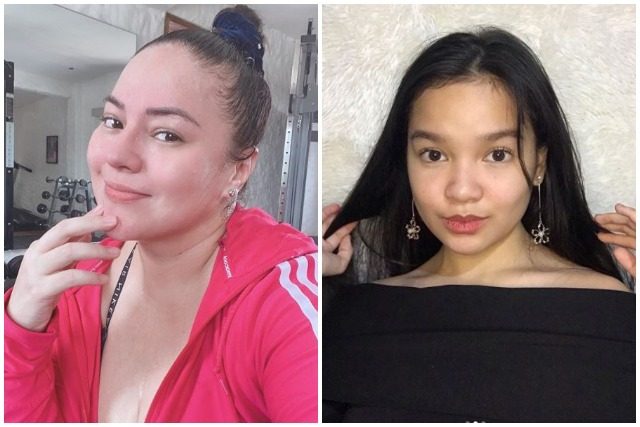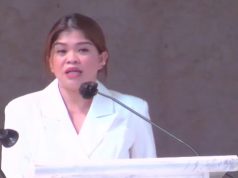
Television host Karla Estrada was accused of “victim-blaming” when she shared her comments about the viral Instagram photos of former child actress Xyriel Manabat in an episode of “Magandang Buhay.”
The 16-year-old recently appeared on ABS-CBN’s weekday morning talk show and one of the things that she talked about was experiencing sexual harassment after she posted a photo on social media.
A video clip of her guest appearance was uploaded on ABS-CBN Entertainment’s YouTube channel on Tuesday, where Estrada aired her thoughts on Manabat’s concerns.
The video began with Manabat admitting that she did not expect her photos to gain traction at that time since those were just “normal” shoots.
She added that she was shocked upon reading the comments but Jolina Magdangal, one of the program hosts, claimed that some of them could’ve been surprised at her pictures as well since they last saw her on television as a child.
Manabat is widely recognized for appearing as the young version of Coney Reyes’ character in the 2011 fantasy-comedy series “100 Days to Heaven.”
Meanwhile, Melai Cantiveros chimed in the discussion and said that even though people are “shocked” about her present appearance, it does not give them a reason to say hurtful words to the teenager.
Estrada agreed but added that “vultures” are to be expected on social media.
“Wala naman talagang may karapatang magsabi ng mga hindi magaganda pero andi-diyan talaga sila, ang daming vultures na nakaabang sa social media so be very careful din,” she said.
“Kasi siyempre, kung ako ang mommy, ayokong paglaruan ‘yung katawan ng aking mga anak, so I tell them, kung ayaw niyo nang meron silang… kasi kahit balot naman ‘yan eh, basta’t kung gustong mangbastos ng lalaki na ‘yan, ‘di ba?” Estrada added.
“So sabi ko, kung gusto niyo mag-post, just be ano… responsible also sa post niyo. Parang ‘wag ka na mag-initiate ng parang, ‘Oh, ano.’ Di ba, ‘yung ganoon! But of course minsan, hindi naman iyun ang dahilan,” the celebrity mom further said.
Last month, Manabat shared that she felt harassed by the lewd comments of some online users on her selfies as they objectified her appearance.
She said that she was not flattered by the comments and asked to be respected.
“Hindi po ako napa-flatter sa ibang comments, kasi ‘yung iba po below the belt. Sana po alam nila at aware po ang tao na sexual harassment is never, never okay. Hindi po siya fine,” the teenager said before.
Estrada’s comments on the issue, meanwhile, were not appreciated by Twitter users who watched an incomplete portion of the video clip uploaded on the microblogging platform.
The clip was cut off after she mentioned the part about “initiating.”
Parang sinampal ni Karla si Xyriel sa show na ito. Kainis. pic.twitter.com/hEGo2NJER7
— Jericho Rayel Timbol (@jerichorayel) October 14, 2020
“Victim blaming again. Uhm excuse me, instead of educating your daughter to dress properly and be more conscious of whatever they post, might as well educate those men to stop sexualizing girls just because (of) the way they (dress)” a Twitter user said.
“Imagine accusing a minor for initiating something because apparently, she wasn’t posting responsibly. She was literally wearing a t-shirt!! This type of mindset is so toxic. What an enabler,” another online user wrote.
Teen singer-writer Kakie Pangilinan, who spearheaded the #HijaAko movement which calls out victim-blaming and rape culture, also shared a series of tweets about the issue, although she didn’t mention any names.
it’s never about the clothes it’s always about the mentality
— pankakie (@kakiep83) October 15, 2020
Estrada has not yet shared any comments on the issue as of this writing.
What’s victim-blaming?
Victim-blaming is an attitude which suggests that the victim, instead of the perpetrator, is held responsible for being assaulted, mostly in a sexual context.
It occurs when it is assumed that an individual did something to provoke the violence by actions, words or dress, a law student-run organization of Harvard said.
Last June, the Commission of Human Rights raised alarm over the prevalence of gender-based violence and victim-blaming, both online and offline.
It reminded the public that posting misogynistic remarks and commentaries encouraging victim-blaming and other forms of violence against women is against the law.
The Safe Spaces Act, otherwise known as Republic Act 11313, penalizes gender-based sexual harassment done on streets, public spaces, workplaces, institutions and on the digital sphere.
It also punishes catcallers and unwanted sexual advances, including cyberstalking and incessant messaging.









